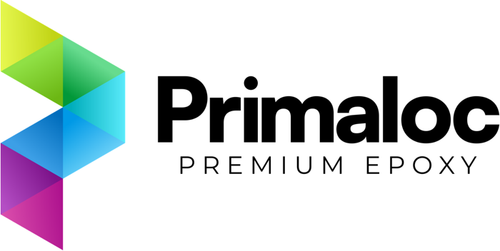Selecting the right varnish or finish for your bar top can be daunting given the many choices out there, which include shellac, lacquers, oil-based finishes, polyurethane, as well as epoxy resin.
Notably, certain options stand out more than others due to their specific advantages and limited drawbacks.
In this article, we'll delve into a comparison between two of the most popular choices for bar top finishing—epoxy resin and polyurethane—to assess which one is more suitable for a standard bar top application.
What Is Epoxy Resin?
Two-part epoxy resins are a type of highly durable plastic that originates as two distinct liquid components. When these components are blended together, a curing process initiates, causing them to change from a liquid state to a solid.
Once mixed and applied to a surface, the epoxy forms a robust bond, effectively protecting and preserving the underlying material. Throughout the curing duration, typically extending over three days, the epoxy resin strengthens progressively, culminating in a hard, crystal-clear finish.
The Benefits of Epoxy Resin
The appeal of epoxy resin lies in its adaptability; its initial liquid state enables it to seamlessly cover irregular shapes, such as a live-edge wooden bar top, and fill minor gaps, ensuring a smooth finish.
Epoxy's durability and low maintenance are particularly prized, offering unparalleled resistance to impacts, scratches, and moisture. Once cured, it becomes waterproof, effortless to clean, and safe for contact with food.
Other Considerations for Epoxy Resin
Currently, there's a wide availability of two-part epoxy resins from various manufacturers. However, a number of these products are quietly imported from abroad, prioritizing cost over quality.
Therefore, when selecting an epoxy resin, caution is advised against opting for "budget brands" that compromise on quality. Investing in a superior-quality resin ensures a longer-lasting, impeccable finish.
What Is Polyurethane?
A polyurethane finish is a type of protective coating commonly used in woodworking and for other materials, which offers a durable layer against damage and wear.
The Benefits of Polyurethane
Like epoxy resin, polyurethane is a polymer that forms a hard, resilient finish upon drying, making it ideal for preserving the aesthetic appeal and integrity of wood surfaces such as furniture and bar tops. This finish can come in various sheens, from matte to high gloss, allowing for customization according to the desired look.
Polyurethane finishes are available in two main types: water-based and oil-based. Water-based polyurethane dries quickly, emits less odor, and retains the wood's natural color, while oil-based polyurethane is known for its rich, amber hue that adds depth to the wood grain.
Both types provide excellent protection against scratches, stains, and moisture, making polyurethane a popular choice for both functional and decorative finishes in residential and commercial settings.
Subjective Aspects of Polyurethane
Polyurethane finishes come with their own set of drawbacks. For one, they do not adhere as strongly to the surface they cover, which can lead to delamination. This separation from the substrate mars the finish's appearance and may result in cracking or breaking.
#1: Polyurethane handles the outdoors poorly.
Over time, polyurethane is also prone to yellowing, especially when exposed to elements like UV rays from sunlight, which can accelerate its aging process.
In outdoor environments, polyurethane is less durable, with humidity, sunlight, and varying temperatures contributing to its wear and tear.
#2: A Polyurethane Finish Can Be More Difficult to Maintain.
In terms of aesthetics, polyurethane interacts differently with the surface it covers. Unlike epoxy, which levels out to create a flat, smooth surface, polyurethane forms a thin layer that preserves the original texture of the substrate, such as wood's natural ridges and indentations. This can complicate cleaning, as dirt and debris can accumulate in these textures.
#3: Polyurethane's Reflectiveness Is Softer, Less Prominent.
Furthermore, polyurethane has a softer sheen compared to the glossy finish of epoxy. When light hits polyurethane, it scatters, creating a more subdued reflection rather than a mirror-like shine.
Is Epoxy Better Than Polyurethane for Bar Tops?
Having explored both finishes, it's time to pit epoxy against polyurethane in a head-to-head comparison.
Epoxy vs. Polyurethane: A Comparative Analysis
-
Physical Durability: Epoxy outshines polyurethane in this aspect. Although polyurethane is strong, epoxy's durability is superior, making it the top choice for a hard-wearing surface.
-
Clarity: Epoxy wins for its unparalleled clear finish. Both options offer aesthetic merits, but epoxy provides crystal-clear visibility, whereas polyurethane offers a softer, more muted reflection.
-
Water Resistance: Epoxy again leads, offering true waterproof qualities through its seamless molecular structure, whereas polyurethane, while resistant, is not entirely waterproof.
-
Heat Resistance: Both finishes offer sufficient protection against heat for everyday items, though precautions like trivets are recommended for very hot objects to protect the surface.
-
Ease of Maintenance: Epoxy claims victory with a finish that's not only longer-lasting but also simpler to maintain and clean compared to polyurethane.
- Cost: Polyurethane is the more budget-friendly option initially. Its lower upfront cost reflects its relatively shorter lifespan and lesser durability compared to epoxy.
Through comparison, it's evident that epoxy surpasses polyurethane in most categories, with the exception of heat resistance where they tie, and cost, where polyurethane is more economical initially. However, considering the longer-term implications such as maintenance, durability, and the limitations on use, polyurethane might end up being less cost-effective over time.
Ultimately, for a finish that combines strength, clarity, longevity, and ease of care, premium epoxy resin emerges as the superior choice.
Primaloc Epoxy: Premium Epoxy for Premium Results
When it comes to epoxy resin, Primaloc Epoxy gets the job done. Our epoxy resin is premium-grade, with high performance in every category, outpacing finishes like polyurethane in strength, shine, and ease of maintenance.
Epoxy resin can be beautiful, strong, and long-lasting—which is why you shouldn't compromise on quality. With Primaloc Epoxy Resin, you get the ultimate finish in durability and visual appeal.
Protect your surfaces by giving them a rock-solid epoxy finish. Choose strong. Choose reliable. Choose Primaloc.





